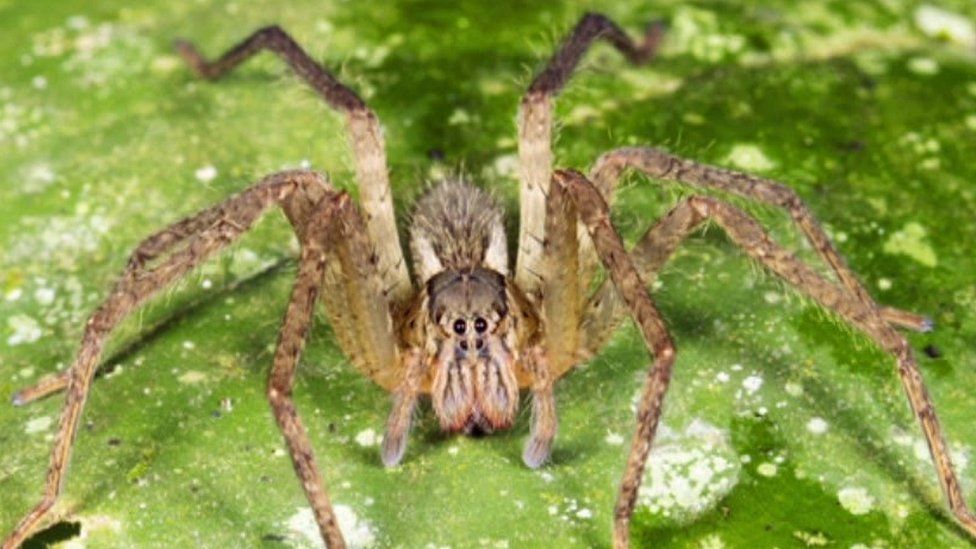'Painful erection' spiders found in family's fruit
- Published

A family have had their home fumigated due to an infestation of "deadly spiders" they say arrived in a bunch of bananas from their local Asda.
Ashley Gamble, from Leicester, told the Sun that dozens of the creepy-crawlies emerged from a cocoon on the fruit.
There is speculation they were Brazilian wandering spiders, a bite from which can cause an "extremely painful" erection and possible death.
Asda said finds like this were "rare" and it was investigating further.
The house was heated up to 60C to kill the spiders, as the BBC's Quentin Rayner reports
Mr Gamble, who moved his family out of the home for a brief period, said it was like "something out of a horror movie".
"All our bananas are washed and sprayed before they are transported to the UK and every single piece of fruit is manually checked for quality and stowaways," a spokeswoman for Asda said.
"We sell one billion bananas every year and the chance of finding a spider is incredibly low, but very occasionally one hangs around to give us a fright."
To rid the property of the spiders a pest control firm heated the house up to 60°C to neutralise them.
Paul Gale, from the company, said Brazilian wandering spiders were "potentially lethal".
"They are from a humid, moist climate. The heat we're putting in is a dry heat and they are unable to live."
Matthew Holden, from the Nottingham Reptile Centre, said their venom could cause an "extremely painful" erection.
However, he added that the "spiders in fruit stories" could be "blown out of proportion" as they were probably more likely to be harmless and from the UK.
There has been no independent confirmation of what species was found at the house.
- Published26 September 2016
- Published31 August 2016
- Published29 May 2015